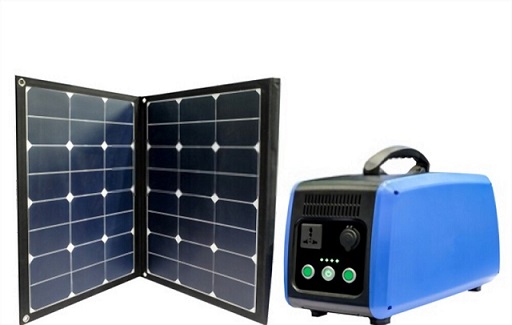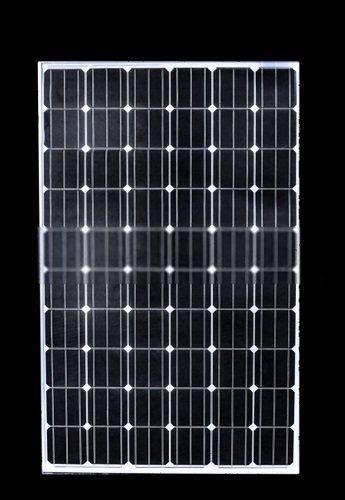A 100-watt solar panel is one of the most convenient solar panels you can get for your home. It will offer you enough energy and is ideal for homes in urban and rural areas. Most solar panels are simple items with two wires. The kit will also contain brackets, and a charger, besides the wires and the panel module. But is a single 100-watt solar panel enough for your home? Well, we are trying to figure out the questions together to ensure you can understand the benefits of using a 100-watt solar panel.
Which Appliances Can a 100 Watt Solar Panel Run?
Well, a single 100-watt solar panel can run many home appliances if charged for at least six to eight hours per day.
Solar Panel Sizes and Weights Installation of Solar Panels Solar Panels Angle How to Clean Solar Panels Best Direction for Solar Panels How Long Do Solar Panels Last
A single 100-watt solar panel has a power output of 100 watts. That means it can produce 100 watts of DC electricity per hour. You can use the panel to charge your smart devices, including smartphones, tablets, smartwatches, etc. It can also power up your modem or home router while you surf the internet. A 100-watt solar panel can run your light fixtures, including LED light bulbs, tube lights, and other lights. Suppose it runs for at least six hours. In that case, it can produce enough electricity to run a ceiling fan or even multiple smaller or pedestal fans. A 100-watt solar panel can power up an LCD monitor, an LCD TV, or even a cable box or satellite box. Some 100-watt solar panels can even charge and work with laptops. Using multiple 100-watt solar panels, you can also use the combined output to power up an AC unit.
The Energy Produced By a 100-Watt Solar Panel
To understand what a 100wayt solar panel can power up, you must understand its energy storage capacities. In simple words, a 100-watt solar panel comes with a solar photovoltaic panel that stores the energy from sunlight and converts the stored energy into electricity. A 100-watt solar panel will produce 100 watts of DC electricity per hour if the weather is sunny and the panel gets direct sunlight. If the weather is cloudy or the panel does not get direct sunlight, it may produce less electricity. In short, its maximum output limit is 100 watts under ideal conditions. In other words, under ideal weather, you can get 400 watts of electricity if a 100-watt solar panel is charged during the peak hours with the most sunlight. But, to get the ideal output, you need to find the peak sun hours or the time when the sunlight can produce 1000 watts/m2 in a single hour. You can easily find the peak hours per your location and the day’s weather. The peak hours can range from nine to five depending on the season, location, and climate.
Benefits of 100-Watt Solar Panel
The best advantage of a 100-watt solar panel is that it can power up most small devices, including light bulbs, mobiles, smart devices, TVs, cable boxes, and even a laptop. On top of that, if you do not have enough space to install solar panels, 100-watt panels are ideal for your home. A single 100-watt solar panel has a dimension of 47×21.3×1.4 inches, which is relatively small. You can place the panel over the window, in a small place on your balcony, or even under a small section of the roof. Hence, it is ideal for urban dwellers. On top of that, 100-watt solar panels are great for those who love to travel and camp outdoors. Due to their compact design, they can easily be carried anywhere. You can even install a 100-watt solar panel on the roof of your RV or camper van. You can use the stored electricity to charge your small appliances during camping. The 100-watt solar panels are easy to set up, and you do not need much technical knowledge. These affordable solar panels are readily available online and in stores.
How Can You Use A 100-Watt Solar Panel?
You can use a 100-watt solar panel in different ways, including-
charging your smartphone, tablets, smartwatches, and even laptops for watching TV and operating the cable box For operating router For operating LED lights and ceiling fans inside your home It can get even a small car refrigerator or mini refrigerator while you are on road trips For charging your devices during a camping night or outdoor event For home decor lights during the holiday seasons and festivities 100-watt solar panels are also great for outdoor cooking or camp cooking inside your RV.
Using multiple 100-watt solar panels, you can run your AC unit or heater units for a whole day.
The Energy Output Of a Solar Panel When it is Not Operating in Optimal Conditions
Different factors directly impact the power a 100-watt solar panel generates. A solar panel only offers the optimal output of 100 watts if the weather is sunny and gets the maximum peak hours. But that does not mean it will not work if the weather is not optimal. A 100-watt solar panel works even on a cloudy day. During cloudy weather, a solar panel will offer an output of 30-watt to 70-watt per hour. It is lower than the optimal output but is not too bad. Many people think solar panels only work during optimal conditions and in summer. That is not entirely true. Solar panels often work better in closer climates than in warmer regions. A solar panel will also work in colder climates. But, you must ensure that direct sunlight reaches the solar panel, irrespective of the season, climate, or weather of a particular day.
Solar electricity from a 100-watt solar panel per day
Suppose the solar panel is charged for at least six hours under direct sunlight. In that case, it will produce an output of a maximum of 600 Watts of electricity. If your 100-watt solar panel receives at least eight hours of sunlight daily, it will produce 1 kilowatt-hour of electricity. If you charge it daily for one year, you will get 365 kilowatt-hours of power. The amount is not negligible and can help you a lot to cut down your electricity bills. But, a solar panel cannot store the power. Hence, you must convert it into electricity simultaneously and store the converted electricity for future use. A simple Li-ion or lead-acid battery of 100 watt is enough to convert solar energy to electricity. A Li-ion battery is better as it requires less amount of capacity. You can also connect your home appliances with the battery to get a continuous power supply from the panel.
Which Appliances Can a Single 100 Watt Solar Panel Run?
To understand the charging and operating scenario better, you must understand some mathematical and physics concepts. Watts= Volts x Amps So, the wattage requirement of any electric device will depend on the amount of voltage and amps it requires. For example, consider a laptop that requires 100 watts for charging with a 1.0 A requirement. Hence, you need 100 Watts of electricity per hour to charge it completely. That means you can charge the laptop fully within one to two hours with a single 100-watt solar panel. Now, consider a cell phone with a battery capacity of 6000mAh. It requires 100 Volts and 0.5 A for one hour. That means it will need 50 watts of power. So, you can charge the mobile twice with a 100 watts solar panel. A simple LED light will require 10 to 14 watts per hour to remain operational. Hence, you can use a single 100-watt solar panel to power up to seven to ten LED bulbs per hour. If you love listening to music, a single solar panel of 100 watts is enough to charge or operate it for a few hours. Such portable speakers usually require 20 to 50 watts of power per hour. Hence, you can run the speaker for five to three hours, depending on the input power. But, a 100-watt solar panel is not enough for operating your home AC unit. Most AC units require 350 to 500 watts of power supply for working round the clock. Initially, up to 2500 watts of electricity may be necessary while the AC unit starts working. Hence, if you plan to power up the AC with a solar panel, you might need to get multiple 100-watt solar panels or higher-powered panels like 200 watt or 300 watt.
1. Solar Generators
You can simultaneously supply power to your electronic appliances with a solar generator. Solar generators are compact solar power stations to create electricity from sunlight. They come with a high-capacity battery to store power with an integrated charge controller and multiple output ports. Most solar generators come with a minimum 2000Wh Li-ion battery with a 3000-watt power inverter and built-in charger controller to ensure you can use all the stored electricity effectively. On top of that, these are portable and last for a long time. If you plan to use solar electricity regularly, you need to get a solar generator.
2. 100 Watt Solar Panels
You can find 100-watt solar panels in different designs. There are conventional panels for home use. Besides that, you can also find portable and especially designed 100-watt solar panels that are travel friendly. Most solar panels come with durable and corrosion-resistant aluminium frames. The panels are sealed and coated with waterproof materials to prevent any electrical-related hazards. On top of that, there are special brackets to fix the panels in a position.
Conclusion
A 100-watt solar panel is enough for powering up your smaller home appliances. It can also help you to save a considerable amount on your electricity bills. On top of that, these panels are versatile and can be used in smaller spaces. You can also use multiple 100-watt solar panels to get more electricity. So, if you are planning to get one, it is the flight time to do that! Comment * Name * Email * Website
Δ







![]()